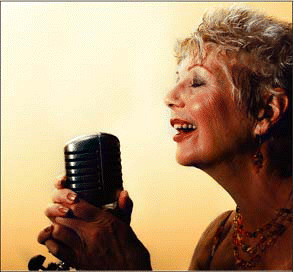We all age, as our bodies unfailingly tell us. Muscles weaken, joints stiffen, hair thins, skin sags-the external signs are evident, albeit somewhat delayed and distorted in the increasing penchant toward masking time through cosmetics. But internal signs are also telling. Hearing dims, vision alters, and the voice takes on a different pitch and tone as the larynx gets older. All these natural and inevitable changes are the stuff of life, but fortunately there is a growing recognition within the health care profession that many of the alterations that come with age can be addressed to improve quality of life, and that age itself should not be used as the reason to dismiss the concerns of people who are experiencing life’s alterations.
Explore This Issue
March 2008For otolaryngologists who deal with older patients who come in with concerns over voice changes, a key factor to proper care, say experts in the field, is first and foremost to listen and be attentive to the patient without giving them, essentially, a diagnosis of age.
According to Stanley M. Shapshay, MD, Professor in the Division of Otolaryngology at Albany Medical College, who regularly sees and treats elderly patients with voice problems, otolaryngologists need to be mindful that voice problems in the elderly can indicate underlying medical conditions and-even if no other medical problems are found-treatments to improve the voice should be discussed with the patient. Don’t dismiss these patients, he said. They should be examined and treated with care because this [voice impairment] is a bona fide problem for these patients, adding that he often thinks his colleagues shrug this off as a sign of aging that an older person just has to accept.
Aging patients themselves may also not recognize the help available for them to improve voice impairments, and thereby often unnecessarily live with a diminished ability to communicate that leads to loss of confidence, credibility, and quality of life that accompanies such impairment. For Robert T. Sataloff, MD, Professor and Chairman of the Department of Otolaryngology-Head and Neck Surgery at Drexel University College of Medicine in Philadelphia, otolaryngologists therefore are also called to take the helm in educating society at large about age-related voice abnormalities, their impact on everyday social and professional activities, and the ways-some quite easy-that are available to improve the voice and quality of life in the older person.
Our society has tolerated abnormal voices and become insensitive to the fact that they can impair the quality of life, he said. We [otolaryngologists] should be diligent and help educate the public that they don’t have to put up with the vocal aspects of aging.
Changes in the Older Voice-Know the Cause
For many elderly patients who present with voice problems, presbyphonia, or aging of the larynx, accounts for a number of voice alterations, including poor vocal projection, shorter phonation duration, and changes in pitch and tone. For many of these people, the main culprit is glottic insufficiency, or the failure of the vocal folds to close solidly. However, because aging affects the whole body system, other changes that may alter breath support or pulmonary capacity, or induce neurologic deficits and tremor, may also be affecting an older person’s voice and indicate an underlying medical condition that needs correction.

The really important thing to remember is that there are multiple factors that impact the quality of voice in seniors, said Michael S. Benninger, MD, Chairman of the Head and Neck Institute at the Cleveland Clinic. It is not uncommon that seniors present to us where their primary initial complaint for progressive neurologic disease are voice-related. I’ve seen patients whose first evidence of Parkinson’s disease or ALS [amyotrophic lateral sclerosis] has been changes in their voice. Although he said that most patients will not have a serious disease, he emphasized that clinicians need to be diligent to make sure there is none.
Leave a Reply